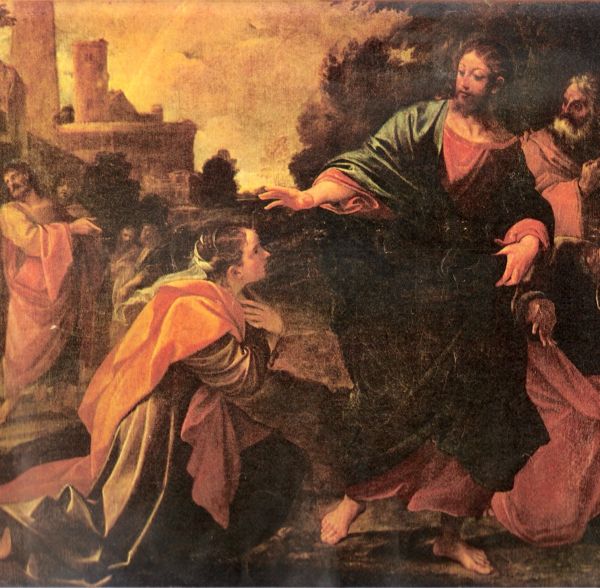In the passage from Mark, the sincere and indomitable faith of a Syro-Phoenician woman is narrated, who asks and obtains from Jesus - precisely by Faith - the deliverance of her little daughter.
The Holy Spirit has a way of bestowing charisms on the small and simple; thus He gave Francis the healing power from many evils and the power of deliverance from the evil one, the tyrant of so many creatures.
Wisdom, which is nobler than all motion and penetrates everywhere by its purity, communicates itself to holy souls and forms friends of God and prophets. Thus in the soul of the Poor Man.
The Sources illustrate numerous healings and deliverances of the possessed by Francis, and describe the growing faith in those who had received the saving gift.
Yes, because the evangelical consequence of these healings is the extensive manifestation of people's active belief, in a sincere and humble manner.
We read in the Sources:
"Once the Saint appeared to a woman from Narni, who was furious and so out of her mind that she did and said frightful and filthy things, and said to her:
"Make a sign of the cross".
She replied that she was prevented from doing so.
Then Francis himself impressed it on her forehead, and instantly she was freed from madness and all demonic influence.
Countless have been the unhappy men and women who, tormented in various ways and by manifold deceptions by demons, were delivered by virtue of the merits of the glorious father" (FF 555).
Francis was very attentive to the ills of the people he met.
He was often seized with great compassion when he saw a creature asking for help in an exasperated and insistent manner.
The documentation of the Sources is permeated by this tenacious and humble logic of the Saint, who, even before the concrete fact, perceived in his innermost being the profound need for the complete salvation of the other.
He believed, in fact, that when a man takes pity on another man, there, God is resurrected, and the Good News is proclaimed.
«For this word of yours, go; the devil has gone out from your daughter» (Mk 7:29)
Thursday, 5th wk. in O.T. (Mk 7,24-30)












